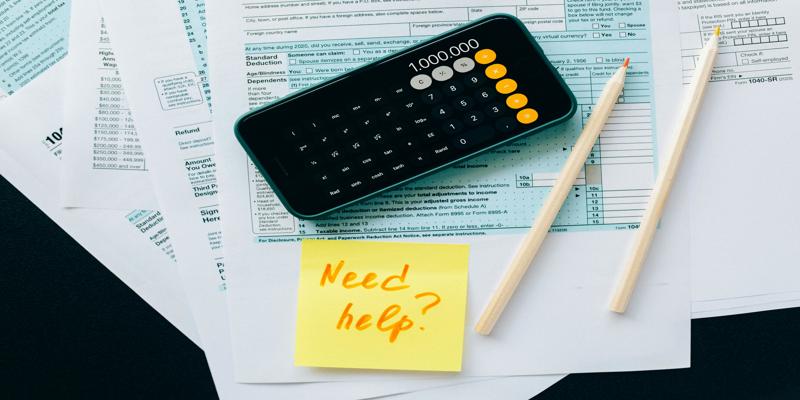The Essentials of Property Appraisal and Valuation Equity (PAVE): Achieving Fair Home Valuations
Dec 14, 2024 By Elva Flynn
Property Appraisal and Valuation Equity, or PAVE, is a significant initiative aimed at addressing long-standing disparities in property valuation, especially in communities of color. At its core, PAVE seeks to ensure that home appraisals accurately reflect market values, regardless of neighborhood demographics. Accurate appraisals are critical because they influence everything from a homeowner's borrowing power to the generational wealth they can accumulate. However, biased valuations have created systemic obstacles, disproportionately impacting minorities and under-resourced communities. PAVE is structured to level the playing field, fostering fair practices in property valuation and promoting financial equity across real estate markets.

PAVE arose as a governmental and industry-driven response to the significant racial and socioeconomic appraisal gaps. These gaps have resulted in lower valuations in certain areas, which in turn limit access to credit and reduce opportunities for wealth building. By establishing standards for fairness and consistency in property appraisals, PAVE addresses the potential for bias, striving to make real estate a more equitable space.
How PAVE Works to Address Bias and Inaccuracies?

The operation of PAVE involves multiple steps, from policy reforms to raising awareness and creating accountability. One of the essential methods PAVE uses is improving the training and standards for appraisers. By implementing enhanced training programs, PAVE encourages appraisers to understand diverse neighborhoods better, discouraging reliance on outdated stereotypes or biased comparative data. This shift helps to prevent undervaluation based on the racial or socioeconomic makeup of an area, fostering more accurate and fair valuations.
Additionally, PAVE promotes transparency in the appraisal process. By mandating documentation of appraisal methodologies and ensuring that homeowners and buyers understand how valuations are conducted, PAVE reduces the mystery surrounding appraisal decisions. Another crucial aspect of PAVE's function is to foster accountability. Requiring appraisal companies and individual appraisers to adhere to non-discriminatory practices instills a layer of responsibility that helps keep bias in check. When valuation data is collected and reviewed systematically, deviations are easier to detect, and repeat offenders in biased appraisals are held accountable.
PAVE also emphasizes the importance of using modern, diverse data sets to assess property value. Traditional appraisal models often rely on comparable properties, but in underserved communities, finding suitable comparables can be challenging due to historic disinvestment. PAVE advocates for innovative approaches that take broader market dynamics into account, creating a more comprehensive understanding of property values and making fair appraisals possible even in less-invested areas.
Why Property Appraisal and Valuation Equity Matters?

The concept of fair property appraisal is about more than just home pricesit's tied directly to the financial well-being of individuals and communities. For a homeowner, an appraisal sets the stage for critical financial decisions, impacting everything from their ability to refinance to the sale price if they choose to move. Low appraisals result in less accessible equity, which hinders the potential for borrowing against a property for education, business investments, or other wealth-building avenues. PAVE's focus on fair valuations thus plays a fundamental role in creating equitable opportunities for individuals in historically marginalized communities.
Beyond the individual financial impact, PAVE supports broader economic equality. Communities where properties are consistently undervalued see fewer investments, reduced access to credit, and a slower rate of economic growth. These effects cascade over time, perpetuating cycles of poverty and financial exclusion. By advocating for Property Appraisal and Valuation Equity, PAVE contributes to a more balanced economic landscape, encouraging investment and development in a diverse array of neighborhoods. Fair appraisals also strengthen local economies by building stable property values and ensuring all homeowners have equal access to the benefits of property ownership.
Moreover, addressing appraisal equity is essential for societal progress. Systematic undervaluing can also have cultural impacts, affecting pride in homeownership and confidence in the economic system. With PAVE in place, more people feel confident that their property's value reflects a fair market assessment, reinforcing a sense of belonging and financial inclusion.
Challenges and Future of PAVE in the Real Estate Industry
While PAVE offers a well-rounded approach to tackling bias in appraisals, challenges remain. For one, changing long-standing industry practices and mentalities takes time. Appraisers may resist new protocols, and smaller appraisal firms might need more resources to implement PAVE guidelines effectively. Furthermore, while transparency and accountability are foundational elements, the risk of unintentional bias is still possible, given that humans conduct appraisals. PAVE addresses this by encouraging regular training and reviews to mitigate unconscious bias, but complete elimination is a gradual process.
The success of PAVE is likely to depend on continuous improvements and technological integration. Advancements in data science and artificial intelligence (AI) present a unique opportunity for PAVE to refine appraisal processes further. Machine learning algorithms, for example, can analyze vast quantities of data and identify patterns that humans need to appnoticeds might miss. If adopted responsibly, AI could reduce discrepancies in property valuations by applying uniform assessment criteria, especially in diverse or underserved areas. However, PAVE will need to ensure that these technologies are used ethically without replicating or amplifying existing biases in the real estate data they process.
In terms of policy, PAVE's longevity will rely on supportive legislation and sustained interest from the industry. Regulatory support can solidify PAVE's initiatives, making fair appraisal practices a standard expectation across the country. Encouragingly, the awareness and attention brought to appraisal inequity through PAVE can foster a shift in public perception, urging real estate professionals to prioritize equity as a core aspect of their practice. As PAVE continues to evolve, its impact could lead to a fairer, more inclusive real estate market that supports the financial well-being of all communities.
Conclusion
Property Appraisal and Valuation Equity (PAVE) represents a meaningful step toward eliminating bias and fostering fairness in property appraisals. By addressing inequities, PAVE empowers homeowners to benefit from their investments fully and contributes to the development of stronger, more equitable communities. Fair appraisals have a significant impact, offering families the means to build wealth and secure financial futures.








